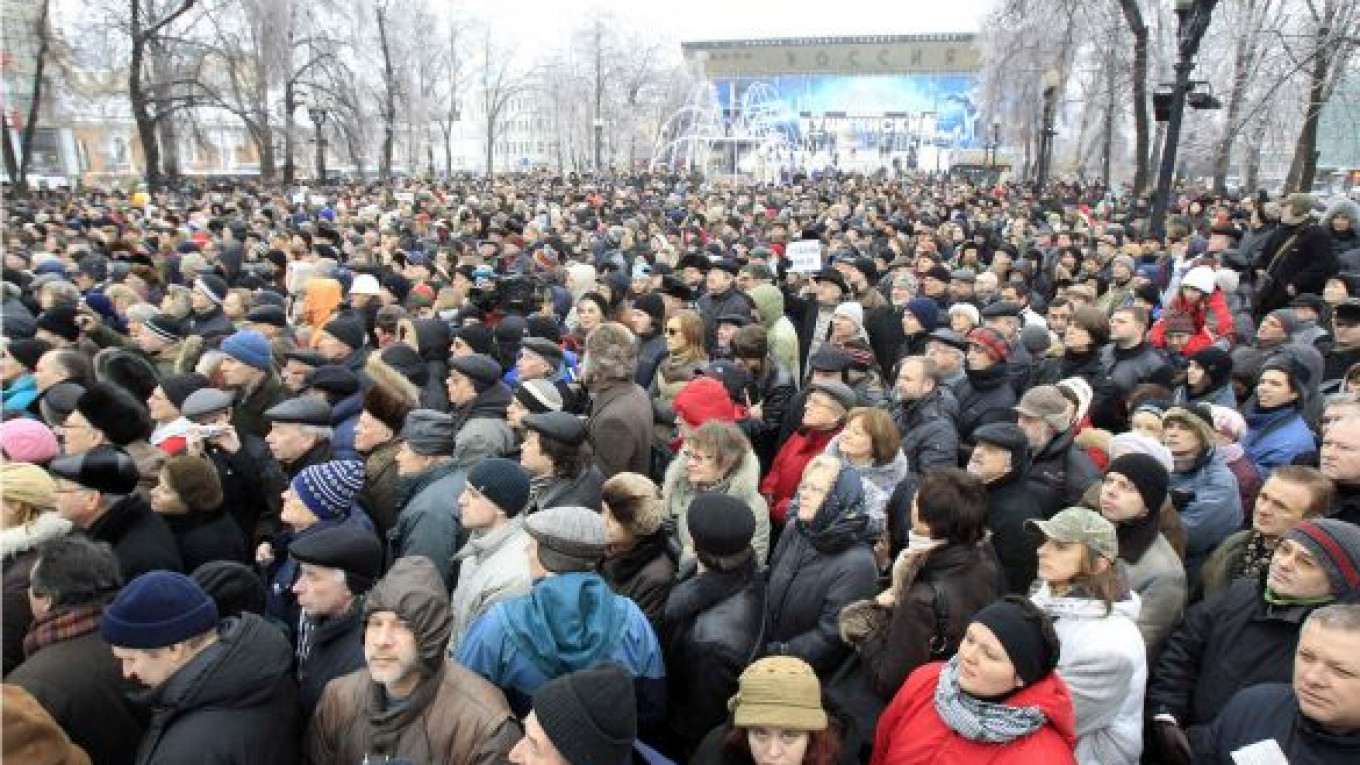Several thousand people rallied Sunday in Moscow to protest the ethnic clashes that have rocked Russia, holding posters reading "Fascists disgrace Russia" and chanting "No to Fascism!"
The rally in downtown Moscow was organized by civil groups in response to the Dec. 11 riots when thousands of Slavic nationalists and sports fans poured into the streets chanting "Russia for Russians!" The rioters clashed with police and beat members of ethnic groups from the Caucasus region.
The violence just outside the Kremlin raised doubts about the government's ability to stem a rising tide of xenophobia. Police arrested hundreds to prevent more clashes in the following days in Moscow and St. Petersburg.
"In Russia, each and every town or village is multi-ethnic, and any flare-up of nationalism in Russia will destroy the country," opposition leader Vladimir Ryzhkov told the rally.
Prominent human rights activist Lev Ponomaryov told The Associated Press it is important for authorities to recognize that nationalism does exist in Russia.
"We should put it straight: yes, there is Russian nationalism, it is a problem facing society and we should handle it," he said.
Russian President Dmitry Medvedev on Friday criticized the police for acting too slowly to disperse the ethnic riots.
While ethnic Russians make up four-fifths of Russia's population of 142 million, the country is also home to 180 ethnic groups. The Caucasus region, with its mountainous terrain and isolated valleys, hosts at least 100 ethnicities including Chechens, who have waged two separatist wars against Moscow after the 1991 collapse of the Soviet Union.
Analysts say the Chechen conflict, with atrocities and civilian slayings committed by both Russian forces and militant Islamists, has triggered the rise of xenophobia and neo-Nazism in Russia as well as growing resentment by Caucasus natives to ethnic Russians and Moscow's rule.
One militant leader and seven suspected militants were killed Sunday in a shoot-out with police in Makhachkala, a city in Russia's volatile North Caucasus. The province where the city is located, Dagestan, faces near-daily violence between police and Islamic insurgents inspired by the separatists in neighboring Chechnya.
A Message from The Moscow Times:
Dear readers,
We are facing unprecedented challenges. Russia's Prosecutor General's Office has designated The Moscow Times as an "undesirable" organization, criminalizing our work and putting our staff at risk of prosecution. This follows our earlier unjust labeling as a "foreign agent."
These actions are direct attempts to silence independent journalism in Russia. The authorities claim our work "discredits the decisions of the Russian leadership." We see things differently: we strive to provide accurate, unbiased reporting on Russia.
We, the journalists of The Moscow Times, refuse to be silenced. But to continue our work, we need your help.
Your support, no matter how small, makes a world of difference. If you can, please support us monthly starting from just $2. It's quick to set up, and every contribution makes a significant impact.
By supporting The Moscow Times, you're defending open, independent journalism in the face of repression. Thank you for standing with us.
Remind me later.






